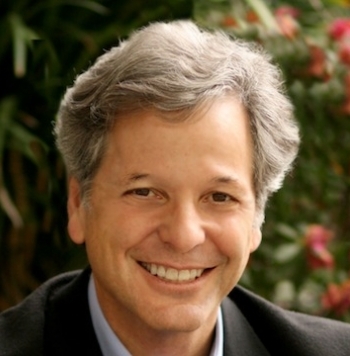
My Zionism grew from a very particular time in history. I was born a year after Israel was established and raised on “the crisis narrative” of Jewish history. The Holocaust hovered over my childhood and formative years and has been a defining experience affecting the post-war Jewish psyche. The Shoah taught Jews everywhere that powerlessness risks destruction and that the State of Israel is our surest protection against forces that would destroy us.
By the time I was 17, Israel had fought three wars. When I was 23 and living in Jerusalem, Israel was nearly overtaken in the Yom Kippur War. I understood that Israel could not lose a single war on the battlefield, that her security and survival must be the number-one priority for Israelis and world Jewry, and that to ignore the real threats to the Jewish people is never an option.
This crisis narrative, which limits thinking of Israel to purely “us against the world” survival terms, has serious limitations.
I agree with Dr. Tal Becker, an associate at the Washington Institute for Near East Policy and a fellow at the Shalom Hartman Institute in Jerusalem, who writes that the crisis narrative “is both narrow and shallow.”
It’s narrow, he says, because the singular focus on survival and presence on the land keeps us from talking about “the breadth of what this sovereign project might offer for the collective Jewish experience.” And it’s shallow because “it pursues Jewish survival for its own sake but tells no deeper story as to why that survival is important and worth fighting for.”
Dr. Becker argues that in order to build a conversation that achieves a vision of Jewish unity behind an Israel we can support wholeheartedly, we need to focus on values. We need to ask ourselves and each other what it will take to address Israel’s challenges and build a moral and just society in which the policies, politics, and culture reflect our Jewish values, tradition, and experience as a people.
The values narrative that Becker advocates defines Jewish unity in terms of a moral engagement that we share – not because we agree or because the one overriding issue confronting us is survival, but because we’re committed to engage in a complicated, divisive, agonizing, and exhilarating process of writing together the next chapter of Jewish history.
When we do that, we become worthy of the better angels in our tradition and our historic experience.
It’s extremely difficult to find the balance between our particular Jewish interests – the concerns and identity we have as a nation and a “tribe” – and our universal concerns for ethics, democracy, and the wellbeing of all. Liberals in the Diaspora are schooled in accommodation, and less comfortable asserting our own rights. Yet the tension between the particular and the universal, the tribal and the humanitarian, runs throughout Jewish tradition.
All of us, Diaspora Jews and Israelis, need to navigate it here in a values-based discussion about what Israel should be. If we can do that, a new Zionist paradigm will emerge that reflects a new stage in Zionist, Israeli, and Jewish history.
What I believe Israel needs now is Tal Becker’s model: values-based Aspirational Zionism. It would require us to grapple with such questions as:
- How do liberal Jewish values augment Israel’s democratic, diverse, and pluralistic society?
- How do we bring the moral aspirations of the Biblical prophets and the compassionate impulses of the Talmudic rabbis – our ethical history – into contemporary ethical challenges like Israel’s relationship with the Palestinians and with Arab Israelis?
- How do we join our fellow Jews in Israel and around the world to fight our enemies – without sacrificing our Jewish moral sensibilities and democratic values?
- How do we as a people genuinely pursue peace as a moral and quintessentially Jewish obligation despite the threat of terror and war?
- How do we support Israelis while advocating on behalf of democracy and the equal rights and dignity of Israel’s minorities?
- How do we oppose oppressive Israeli policies without turning our opponents into the “other” and losing the possibility for common ground – and true peace?
- How do we preserve a Jewish majority in Israel while supporting social justice, a shared society with Arab Israeli citizens, and the human rights of all?
These questions take us to the heart of liberal and Reform beliefs and bring them into the real world, where we can take a turn at making them compatible with a liberal, democratic nationalism.
Liberal American Jews can be fully Zionist even as we ask the hard questions that go to the core of Jewish tradition itself. We can do the hard work of bridging the tribal and the universal, addressing our need as Jews for sovereignty and rights as a nation, as well as the needs and rights of all.
The aspiration in Aspirational Zionism is not for an end to disagreement and passionate debate. It’s precisely the clash of our opinions and our willingness to understand each other – influence each other, listen to each other – that is what will shape our Zionism and Israel going forward.
As liberal Reform Aspirational Zionists, we are obliged to accept the other – even as we insist on our national rights and puzzle out how to claim them in a moral fashion. It’s difficult to hold onto each pole in tension, but hold them we must, for the sake of the full expression of our Jewish identity.
Want to learn and read more about Reform Zionism? Subscribe to Israel Connections, our Wednesday email (part of the Ten Minutes of Torah series).
Rabbi John L. Rosove is senior rabbi emeritus of Temple Israel of Hollywood in Los Angeles, CA, the immediate past national chair of the Association of Reform Zionists of America (ARZA), and a co-chair of the Rabbinic and Cantorial Cabinet of J Street. He is the author of Why Judaism Matters: Letters of a Liberal Rabbi to his Children and the Millennial Generation and Why Israel (and its Future) Matters: Letters of a Liberal Rabbi to his Children and the Millennial Generation. This essay is adapted from the latter book and is republished with permission.

